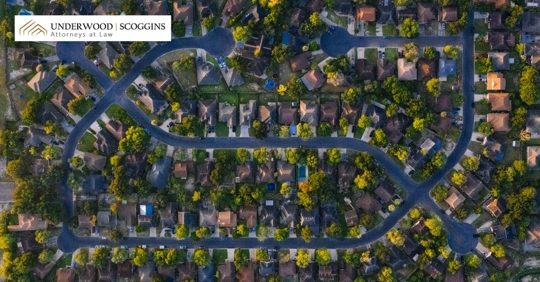Real estate is more than just purchasing or developing property; it is an intricate process often regulated by government mandates. One of the most significant factors influencing property ownership and use is zoning laws. Whether you are planning to purchase, develop, or expand a property in Georgia, understanding these laws is essential to achieving your real estate objectives while remaining compliant.
What Are Zoning Laws?
Zoning laws are regulations put in place by local governments to control how land within a certain area can be used. These laws dictate the type of structures that can be built, their size, and the way they are used. For example, a zoning ordinance might permit residential homes in one area while restricting industrial facilities in the same vicinity.
By implementing zoning policies, cities and counties aim to maintain order, preserve property values, and promote sustainable urban development. While these regulations are primarily well-intentioned, they may pose challenges to property investors, especially those unfamiliar with the legal requirements.
Common Types of Zoning Categories
When reviewing zoning designations, here are the most common ones you will encounter:
- Residential zoning: Limits land usage to housing (single-family homes, duplexes, apartments, etc.).
- Commercial zoning: Permits business-related activities, such as office buildings, retail stores, and restaurants.
- Industrial zoning: Covers manufacturing facilities, warehouses, and other industrial uses.
- Agricultural zoning: Protects farmland and agricultural activities while limiting residential or commercial construction.
- Mixed-use zoning: Combines residential, commercial, or industrial uses within one district to encourage versatile communities.
Understanding Zoning Laws in Georgia
Zoning laws in Georgia operate at the county and municipal levels. Each locality has its own set of zoning ordinances that property owners must follow. For example, Fulton County may enforce zoning codes that are distinct from those in Gwinnett County or smaller cities like Roswell.
Georgia's zoning laws often involve these key elements:
- Zoning maps: Local governments use zoning maps to designate specific zones and their permitted uses.
- Rezoning procedures: Property owners can petition for rezoning to change the permissible use of their land, though approval often hinges on public input and local planning board recommendations.
- Setback requirements: These define how far buildings must be positioned from property lines to ensure safe distances between adjacent structures.
- Variance applications: Should your intended use of a property slightly conflict with zoning codes, you can apply for a variance, which is essentially a legal exemption.
How Zoning Laws Can Impact Your Real Estate Plans
Understanding how zoning laws govern property use is crucial to ensuring your investment aligns with regulatory limitations. Below, we discuss some of the primary ways these laws can affect real estate plans:
Development Restrictions
Zoning codes determine what you can and cannot do with your property. For instance, if your land is zoned for residential purposes, you would need to file a rezoning request to establish a commercial entity, such as a retail shop or restaurant. This process can be time-consuming and is not guaranteed.
Financial Implications
Zoning regulations have direct impacts on property values. Land zoned for commercial use, for example, often commands higher prices than land zoned for agricultural purposes. Restrictions may also increase costs if rezoning or variance applications become necessary.
Limitations on Renovations or Expansions
If you acquire an older property with the intent to renovate, zoning laws may impose restrictions. For example, historic preservation zones might require additional approvals to ensure renovations align with the area's architectural character.
Environmental Considerations
Some zoning ordinances include environmental protections, limiting development in ecologically sensitive areas such as wetlands or floodplains. These restrictions may impact feasibility and require coordination with environmental agencies.
Navigating Zoning Laws with Confidence
Navigating zoning laws may seem overwhelming, but proper research and professional guidance can help you mitigate potential challenges. Here are a few proactive tips:
- Consult Zoning Maps: Review the zoning map and regulations for your locality before purchasing or developing property.
- Engage Local Authorities: Build relationships with local planning officials to better understand ordinances and approval processes.
- Hire Professionals: Attorneys, urban planners, and surveyors can provide valuable insights and help you comply with complex regulations.
- Consider Community Input: Building rapport with the community increases public support for rezoning or variance applications.
Take the First Step Toward Smarter Real Estate Decisions
Zoning laws are a fundamental aspect of real estate ownership and development, shaping the possibilities and limitations of property use. Understanding these regulations, particularly in a state as diverse as Georgia, is essential to achieving your real estate goals. Whether you are investing in a commercial venture or planning a residential development, proactive planning can ensure smooth, compliant progress.
If you're exploring real estate opportunities and have specific questions about zoning compliance, don't hesitate to reach out. Underwood Scoggins has land use lawyers in North Georgia, Metro Atlanta, and beyond that can help with zoning and land use matters. We can help you understand local regulations and ensure you have the guidance you deserve.
Your next investment deserves a solid foundation, and understanding zoning laws is the first step toward building your success.
Call us today at (762) 300-3484 for a consultation now.


